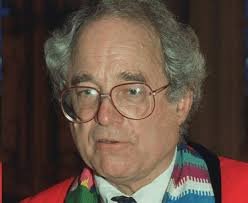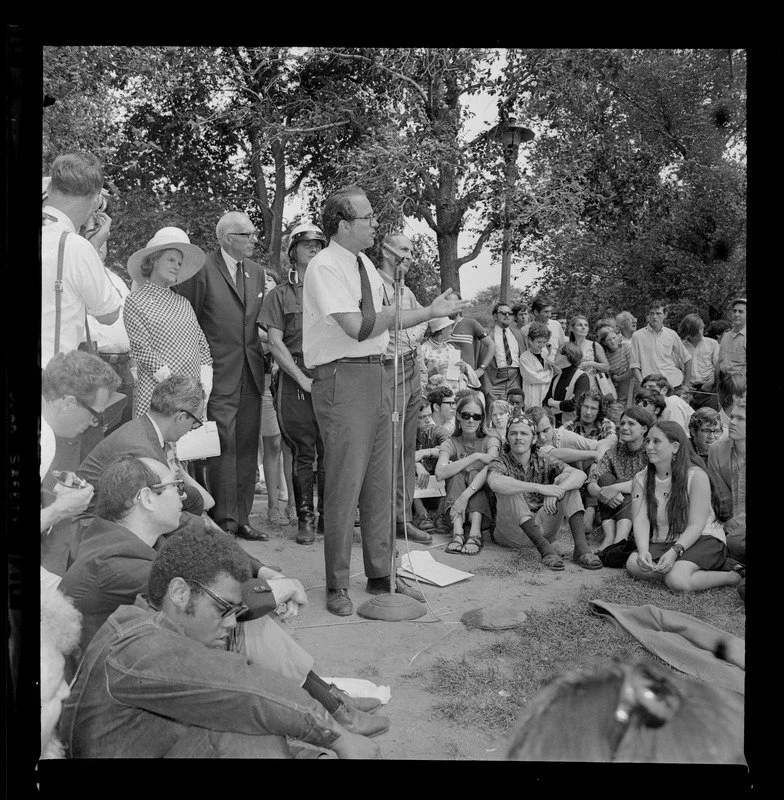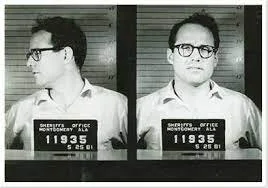William Sloane Coffin, Jr
Rev. William Sloane Coffin, Jr.
Prophetic Pulpit and Public Protest
William Sloane Coffin Jr. (1924-2006) was an American clergyman who embodied the concept of faith lived in action. His life, which spanned the mid-20th century, intersected the era’s most defining social and political movements. This article explores this complex and inspiring figure, from his privileged beginnings to his prophetic pronouncements from the pulpit of Riverside Church in New York City to his work advocating for nuclear disarmament.
Early Life and Influences
William Sloane Coffin Jr. was born into an accomplished and unique family, that boasted of Wall Street titans and socially conscious ministers. His paternal great-grandfather, William Sloane, was a Scottish immigrant who co-founded the very successful W.& J. Sloane Company. However, his uncle, Henry Sloane Coffin, was a towering figure in American Protestantism, serving as president of Union Theological Seminary and one of the most famous ministers in the United States. This exposure to a life dedicated to faith and service exposed young William to the needs of his community and world [1].
Despite his familial connection to ministry, Coffin’s early life followed a more traditional path for someone of his background. He attended prestigious prep schools, where academics and social connections were paramount. He later enrolled at Yale University and joined Skull and Bones thanks to his friendship with the future United States President George W. H. Bush. This placed him firmly in the realm of connections, power, and influence.
A Seed of Discontent and Turning Point
Coffin graduated from Yale in 1949. He served in the military during World War II and joined the CIA during the early years of the Cold War. Though connected socially and while serving his country diligently, a seed of concern and discontent began to take root.
Several factors stirred Coffin’s unease:
My first exposure to Rev. Coffin was this book, “The Heart is a Little to the Left.” An excellent read led me to other works and sermons.
Exposure to the Realities of War: World War II exposed Coffin to the devastating human cost of conflict. The reality of more war after two massively devastating, gruesome world wars, weighed heavily on this man of conscience [2].
The Post-War World and the Rise of Communism: The anxieties of the Cold War and America’s growing concern about the threat of the spread of communism drew many, like Coffin, to join the CIA. However, the agency’s covert tactics and international entanglements often caused moral dissonance within those with such a moral compass [3].
The Influence of Union Theological Seminary: Coffin entered Union Theological Seminary in 1949 with a conscience awakened. The seminary provided fertile ground for his growing social conscience. Two key influences emerged.
Reinhold Niebuhr's Theological Emphasis: Niebuhr, a prominent theologian at Union, emphasized social justice and prophetic action. He challenged the status quo and advocated for the marginalized. These ideas resonated deeply with Coffin, offering a framework for understanding the disconnect he felt between his comfortable life and the world's injustices [4].
The Broader Social and Intellectual Climate: The post-war era was a time of social and political awakening. The burgeoning Civil Rights Movement and growing concerns about nuclear proliferation provided a real-world context for Niebuhr's teachings. Coffin was driven to see faith in action and his culture and nation provided the opportunity [5].
Ordination, Chaplain, and Minister of Riverside Church
He was ordained as a Presbyterian minister in 1956. As with any ordination, this marked a pivotal moment in his life. He dedicated his life to preaching a message of social justice. The seeds of faith and social conscience, sown in his childhood, blossomed into a ministry that challenged the powerful, the connected, and the established.
Rev. William Sloane Coffin preaching at Riverside Church in New York City, New York.
He served as chaplain at Phillips Academy and Williams College before returning to his alma mater, Yale, in 1958. During his tenure as Yale Chaplain (1958-1975), Coffin emerged as a prominent voice for social change.
The Civil Rights Movement of the 1960s deeply impacted Coffin. He championed racial equality, actively supporting the cause and even facing arrest alongside protestors. This period also witnessed the escalation of the Vietnam War, and Coffin became a vocal critic of the conflict. His powerful sermons and public pronouncements resonated with a generation disillusioned with the war.
In 1977, Coffin became senior minister of Riverside Church in New York City. This historic institution, known for its advocacy and ministry for the marginalized, provided a national platform for Coffin's ministry. He and Riverside saw this as walking faithfully in the footsteps of Christ.
Coffin, Nuclear Disarmament, and Anti-War Protests
Coffin's commitment to justice extended far beyond the walls of Riverside Church. He became a vocal advocate for nuclear disarmament, a cause that resonated deeply with him in the shadow of the Cold War. He believed that the threat of nuclear annihilation loomed large, posing an existential threat to humanity.
Rev. William Sloane Coffin pictured with Rev. Martin Luther King, Jr.
In 1987 Coffin concluded his work at Riverside Church and assumed the presidency of SANE/FREEZE, a merger of two prominent peace groups. Coffin, a seasoned peace activist, was a pivotal leader and effectively leveraged the organization’s growing influence to mobilize significant public support. Public demonstrations, such as the impressive anti-Gulf War march that drew over half a million protestors, became a hallmark of SANE/FREEZE’s activism under Coffin’s leadership.
Powerful Sermons: He delivered powerful sermons from the pulpit at Riverside Church, urging his congregation and a wider audience to confront the dangers of nuclear weapons. His sermons were not only theologically rich but were also laced with a sense of urgency, calling for a move away from the brink of nuclear war [6].
Coffin's sermons continue to inspire preachers today ([2], [3], [4], [5], [6]). He was remarkably able to weave together scripture, current events, social commentary, and theology in a way that resonated with listeners. His sermons were intellectually stimulating and socially relevant, providing a powerful model for aspiring preachers. Several collections of his sermons, such as "The Collected Sermons of William Sloane Coffin: Volumes One and Two," offer a window into his preaching style [1].
Public Demonstrations: Coffin believed that public demonstrations could raise awareness and put pressure on policymakers. He participated in marches and rallies alongside other peace activists, mobilizing public support for nuclear disarmament [7].
The Scriptures are filled with calls for justice. Amos, the great prophet and preacher, said, “But let justice roll down like waters, and righteousness like an ever-flowing stream” (Amos 5:24) [10]. Coffin embodied this ideal through his prophetic actions. His willingness to stand in solidarity with the marginalized, even at personal risk, is a powerful example for those engaged in justice ministry today.
Is this what John Lewis would call “Good Trouble?”
Lobbying Efforts: Recognizing the importance of political action, Coffin also engaged in lobbying efforts. He met with members of Congress and the White House, advocating for policies that would curb the nuclear arms race and prevent the proliferation of these weapons [8].
International Engagement: The threat of nuclear war transcended national borders. Coffin understood this and extended his activism to the international stage. He participated in international dialogues and initiatives to promote nuclear disarmament and foster peace worldwide [9]. Coffin emerged as a prominent leader in the movement for nuclear disarmament. His tireless efforts helped to shift public opinion and influenced policymakers, contributing to a decrease in global nuclear stockpiles
Ecumenical and Interfaith Dialogue: Coffin advocated for ecumenicalism, fostering cooperation and understanding between Christian denominations. He served on the governing board of the National Council of Churches (NCC) a prominent American ecumenical organization[11]. He also championed interfaith dialogue, believing that Christian values transcended human boundaries and that peace glorified God. Coffin’s sermons, writings, and messages often emphasized the vital message of Christianity: love, justice, and peace. This message helped bridge divides and inspired a unified Christian voice on social issues such as nuclear disarmament and racial injustice.
Later Years and a Legacy
In the late 1980s, Coffin suffered two strokes. These left him with slurred speech and limited mobility. While his physical limitations prevented him from the public activism of his earlier years, his spirit remained unbroken. He continued to write and teach, his powerful intellect undimmed.
Coffin, Jr. retired as president of SANE/FREEZE after serving for a decade. However, retirement did not signal the end of his service. The final years of Coffin's life were marked by a continued dedication to sharing his message. He lectured at universities and seminaries, his insights on faith and social justice captivating audiences despite his physical limitations. He also penned several additional books, reflecting on his experiences and offering his wisdom to a new generation.
William Sloane Coffin Jr. passed away in 2006 at the age of 82. Despite the physical challenges of his final years, his legacy as a prophetic voice for justice remained strong. His life story, a testament to the transformative power of faith, continued to inspire pastors, activists, and everyday people seeking to live out their beliefs.
The William Sloane Coffin Archives at Yale University Library house a vast collection of his sermons, writings, and personal papers. This archive ensures that his legacy will continue to be studied, inspiring future generations to pursue social justice with prophetic courage.
Ps: Listen/Watch the sermons. Feed your soul.
———————————————-
1. William Sloane Coffin Jr.: A Holy Impatience by Warren Goldstein (This biography offers insights into Coffin's early life and possible influences) 2. The CIA and the Cold War: A History by John Prados (Provides context for the CIA's activities during Coffin's time) 3. Henry Sloane Coffin: The Preacher and the Social Gospel by Charles Howells (Details the life and work of William Jr.'s uncle) 4. Reinhold Niebuhr and Christian Realism: A Critical Introduction by Ronald Stone (Explores Niebuhr's theological ideas and their influence) 5. The Postwar Paradox: Christianizing Cold War America by Mary C. Dudziak (Examines the intersection of religion, politics, and social movements in the post-war era)
"The Collected Sermons of William Sloane Coffin: Volumes One and Two": https://www.prcli.org/wp-content/uploads/2020/05/The-Thoughtful-Christian-PRC-Webinar.pdf
"The Rev. William Sloane Coffin - Baptism" (Cathedral of the Holy Spirit): https://cathedral.org/sermons/the-rev-william-sloane-coffin-baptism/
"William Sloane Coffin Sermon" (Northern Kentucky University): https://williamsloanecoffin.org/download-sermons/
"William Sloane Coffin - Riverside Church Sermon" (YouTube): https://m.youtube.com/watch?v=w1W5e2uvsqQ
"William Sloane Coffin - Anti-War Speech" (YouTube): https://m.youtube.com/watch?v=gl-bjtDYiMk
"A Sermon by William Sloane Coffin" (Duke University Repository): https://chapel.duke.edu/archives/preaching?year%5Bvalue%5D%5Byear%5D=





